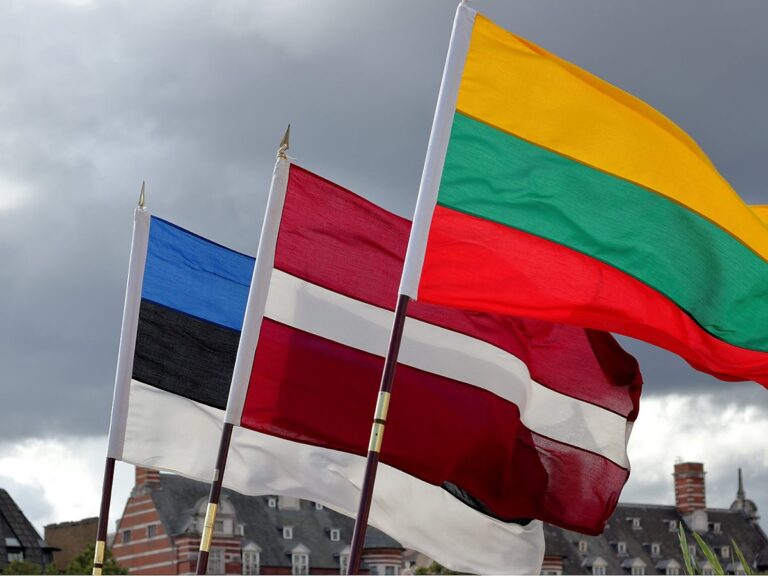
Even so, one of the region’s largest investors in alternatives not only remains active but is expanding. Based in Vilnius, Lithuania’s capital, INVL Asset Management operates the Baltic Sea Growth Fund, a mid-market fund targeting growth and control investments in the region. The firm manages €1.7 billion of assets and recently acquired the remaining shares in private debt firm Mundus to tap into growing credit opportunities.
We spoke to Vytautas Plunksnis, INVL’s head of private equity, to find out about opportunities in the region. The following has been edited for length and clarity.
PitchBook: How has the war in Ukraine impacted private equity activity in Central and Eastern Europe?
_15382_(1).jpg)
Plunksnis: I would say that one of the trends is that the bigger international firms are not as active as they’d been before the war. When the war started, we saw these investors leave the region, or wait for more clarity—especially those from the US. Even now we still see less of them.
There is less competition, but international funds come for the great assets. Being local means that you can react faster and understand local entrepreneurs, which is why everybody’s busy in the region.
In Lithuania, in particular, we have good prospects. Even though it’s a small country, it benefits from a Nordic-style corporate governance and rule of law, and good companies at attractive market valuations.
Are there any disadvantages to the absence of global private equity players? What are the preferred exit strategies?
The advantages come when we are buying assets, but we still need those international firms in order to exit from investments.
In terms of other exit strategies, if companies are attractive for strategic buyers, they will also be interesting to private equity. We invested in private healthcare company Inmedica in 2019 when it had revenues of around €10 million. Now it has revenues of around €100 million and is a huge success story for us. So we expect interest from strategic buyers, some of which are often backed by private equity.
Your firm is quite active in the infrastructure sector. What opportunities do you see in the space?
Infrastructure’s attractiveness is universal because the sector needs upgrades from governments, but there is also space for private investors.
Currently, we have exposure to renewable energy such as solar in Romania and Poland, but not in the Baltics. The war taught everybody that you need to be energy self-sufficient as a country because depending on imports is a risky strategy.
What was the thinking behind buying out the rest of Mundus?
Our motivation was to raise a €100 million-plus private debt fund, and the idea is driven by the fact that local banks, due to regulatory constraints, have created a funding gap. There are good companies with good business ideas, but banks cannot always lend as much as the entrepreneurs want.
In general, the Baltic banking market is quite concentrated. Up to 80% is controlled by Citibank, ACB and Luminor, which is now owned by Blackstone. Those big players might be hampered in lending due to their corporate policies, so there is certainly a big opportunity for private debt. Also, not all entrepreneurs in the region want to share equity. For certain people, higher yielding debt is better. Because after the project is successful, they still own 100% of the business.
Who is investing in your funds? Does it differ from other countries in the region?
It’s quite hard to raise a fund if you don’t have the backing of either the European Bank for Reconstruction and Development or the European Investment Fund. However, In the Baltics we have local pension fund managers who like to invest back into the region for job creation, which in turn creates the potential to manage future pensioners’ money.
But the situation in Poland is much worse because local pension funds do not invest into private equity at all. And this means if you’re a Polish manager, the majority of a fund’s capital comes from outside of Poland. In the Baltics, the pension fund industry is growing, and it is as if private equity success stories are their success stories due to their investment.
How has the investor base at INVL developed over the years?
Our strategy always was that you start small and build a track record. When we started, we relied on a local investor base, as it’s better when you speak to international LPs that you can show trust from the local market. So as our firm grows, the interest naturally increases because you are doing bigger deals. The fundraising environment was never easy, but now you have this additional question about the war.
What’s the rate of return you’re looking for from your investments?
We underwrite our investments with an expectation of 20-25% IRR. What’s different from Western managers is that our leverage levels are much lower. We are buying companies at the same multiples as those in Western Europe but without using the same leverage. This seems like a safer way to invest.
One example of this success is our investment in plastics recycling company Eco Baltia, which over three years has seen its EBITDA grow by four times and revenue by a multiple of three times.
Featured image by Devis M/Shutterstock